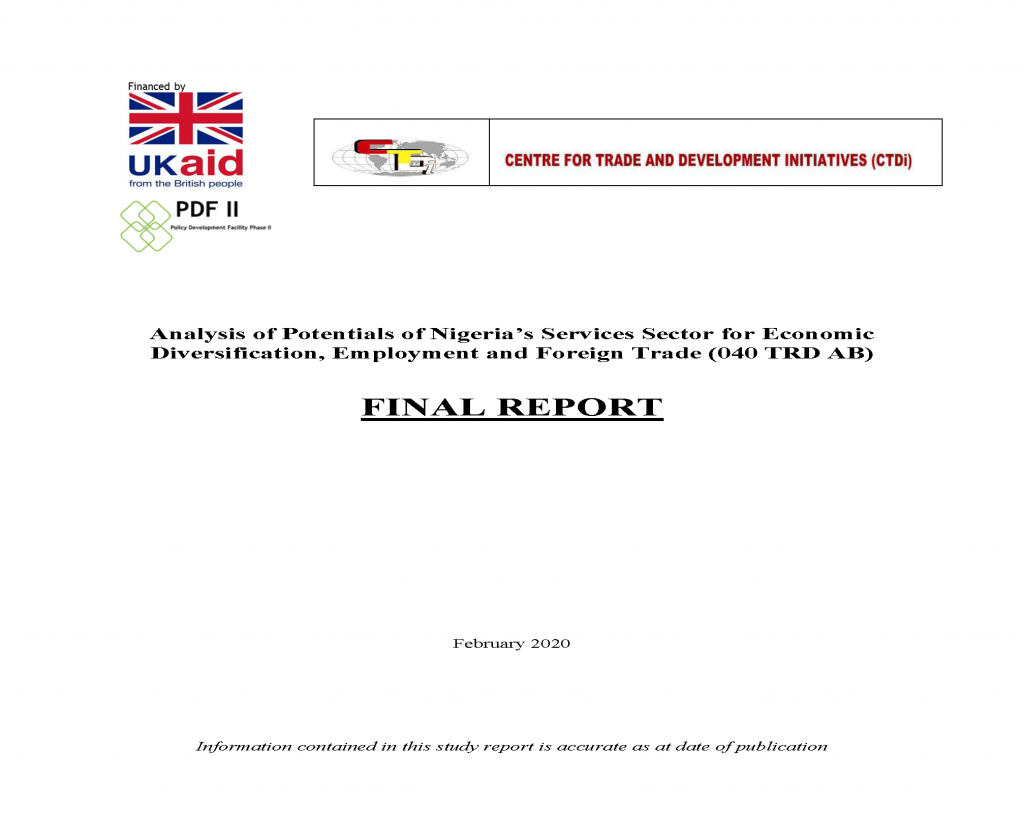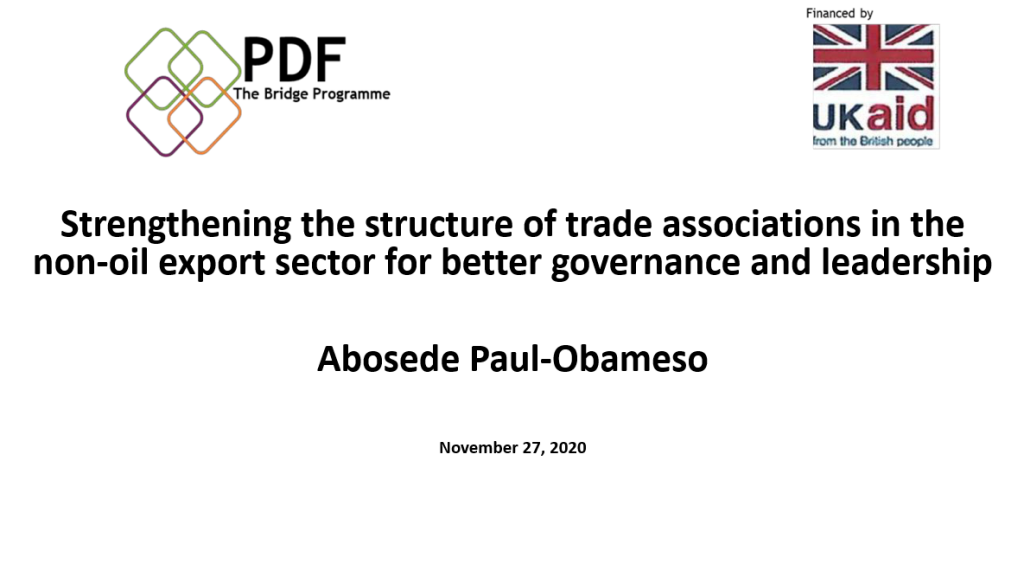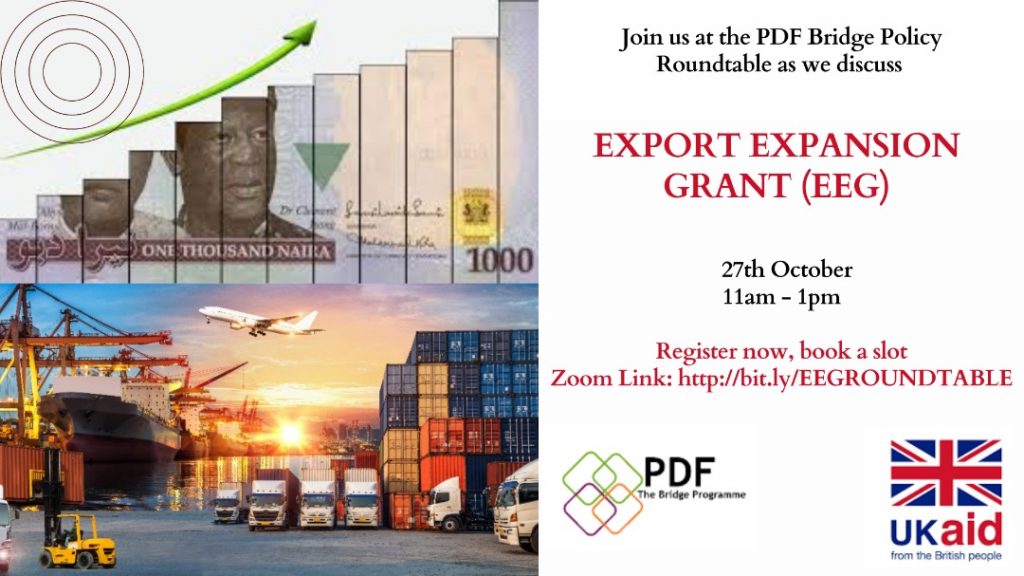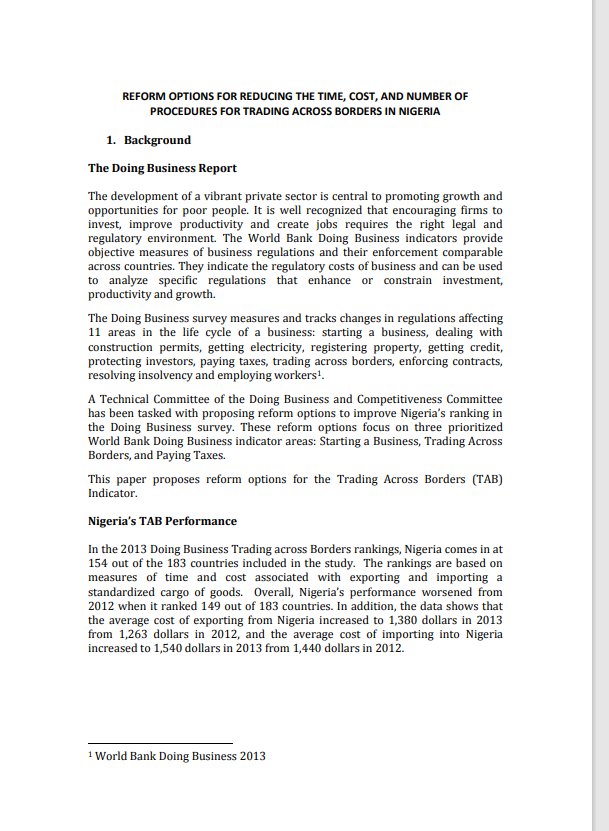Aba Industrial City is an aggregation of thousands of MSMEs and mass producers of industrial goods including garment and leather products. If properly harnessed, the mass production capacities of component clusters of AIC and similar models are capable of positioning Nigeria at a competitive advantage in the global garment and leather industrial space. In 2016, the Textile, Apparel, and Footwear sector contributed N2 trillion ($6.6 billion), approximately 2% of Nigeria’s total GDP, to Nigeria’s economy.
Improving Nigeria’s Non-oil Exports: Aba Industrial City
File type: PDF
Number of pages: 4
File size: 636KB
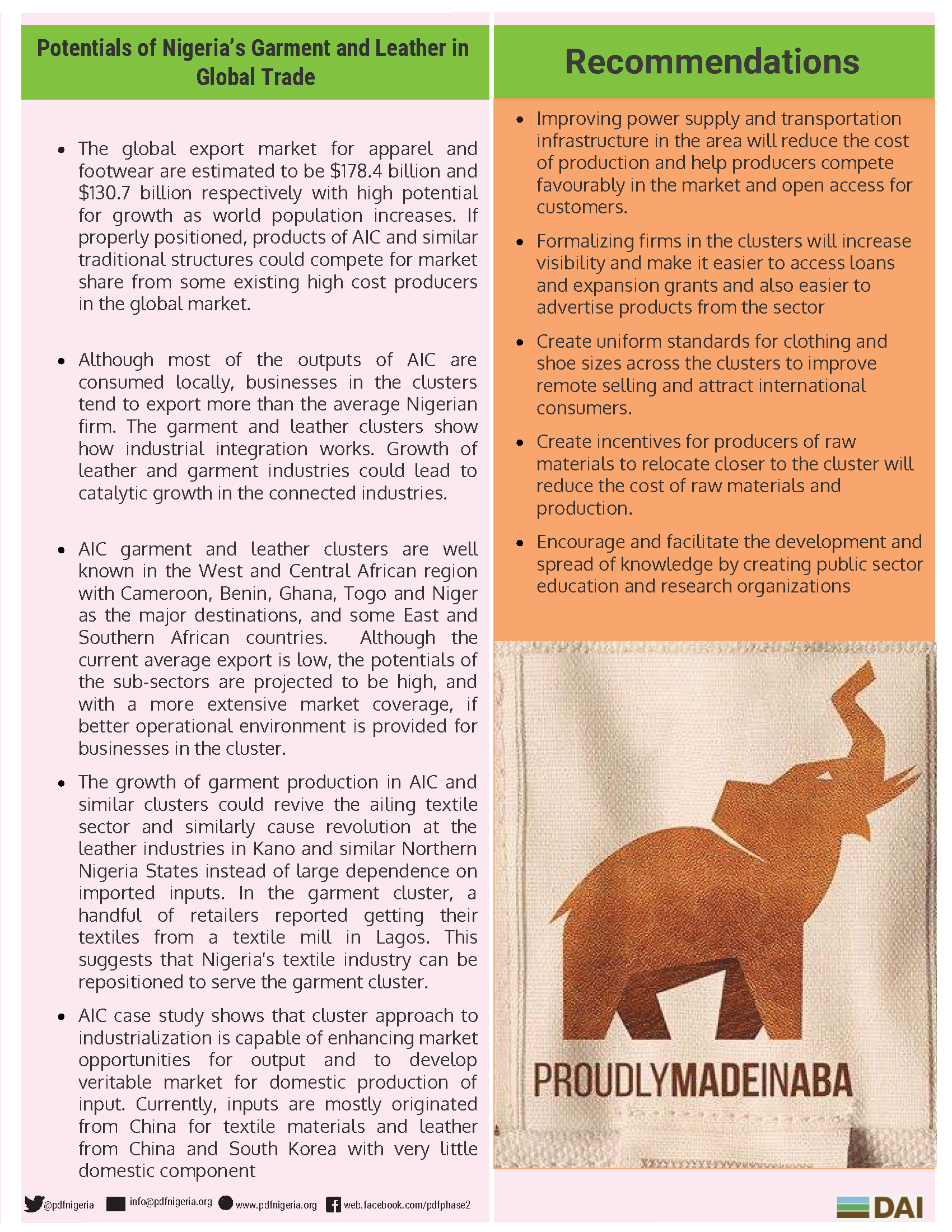
Associated resources
Businesses that operate in a particular domain are expected to adhere to some rules and regulations. Here is a training material that covers some of these requirements. This does not take the place of legal advice.
Africa’s contribution to global trade in services is little with slow growth despite rapid globalisation and liberalisation. The continent’s intra – African trade in services is also relatively little. Nigeria’s services sector contribution to its GDP is huge, representing 55.8 per cent in 2017. It recorded a growth rate of 1.83percent in 2018. Hence, the services sector possesses the immense potential to promote diversification, employment, and growth, even without a current holistic services sector policy. This study specifically mapped and profiled key services sectors; reviewed domestic regulations relating to services; estimated the current and future potentials for export, and provided associated recommendations.
This is a presentation from the second day of the Trade Associations capacity building titled – Strengthening the structure of Trade Associations in the Non-oil Export sector for better Governance and Leadership. It covers Member Relations & Communication, Advocacy and Stakeholder Management, Fundraising & Financial Management as well as Leadership & Corporate Governance.
Export Expansion Grant (EEG) was established under the Export Incentives and Miscellaneous Decrees of 1986 and amended into an Act in 1992 to accomplish the diversification agenda of the Federal Government of Nigeria (FGN). Other export support funds created under the same Act are the Export Development Fund (EDF) and Export Adjustment Scheme Fund (EASF). The funds have been repositioned in the Economic Recovery and Growth Plan (ERGP) of 2017-2020. The EEG is a post-shipment incentive scheme aimed to achieve three key objectives: (i) to enable exporters to expand their businesses more conveniently, (ii) make Nigeria’s non-oil export more competitive, and (iii) facilitate greater and faster foreign market penetration.
PDF II (now PDF Bridge)’s Trade Policy Workstream funded a study on “Analysis and Impact of the Export Expansion Grant on Export Potential, Market Access and Export Competitiveness in Nigeria”. This policy roundtable discussed the findings and recommendations from this study.
The lack of improvement and deterioration in Nigeria’s export trade performance rankings such as measures of time and cost associated with exporting and importing a standardized cargo of goods reinforces the need for Nigeria to undertake urgent and extensive reform to improve its trading across borders performance. This research provides immediate, medium and long term reform options.


